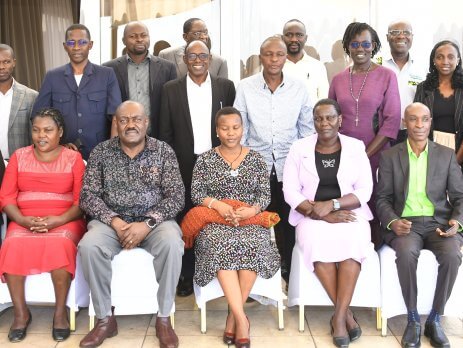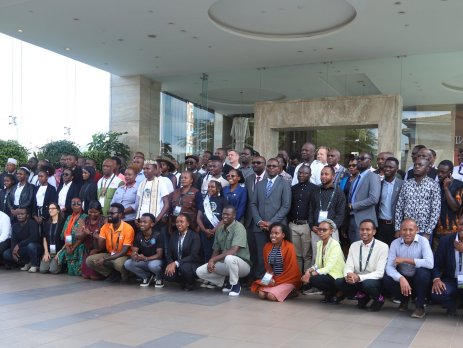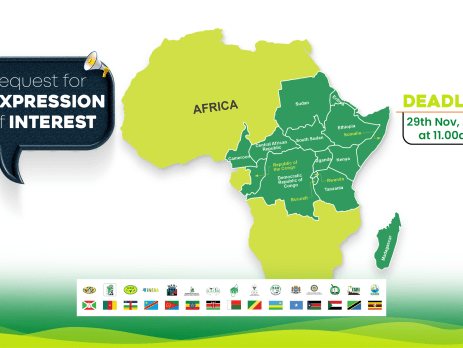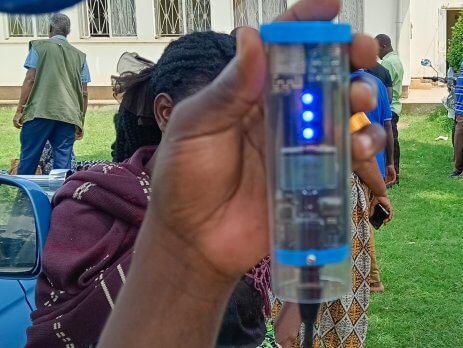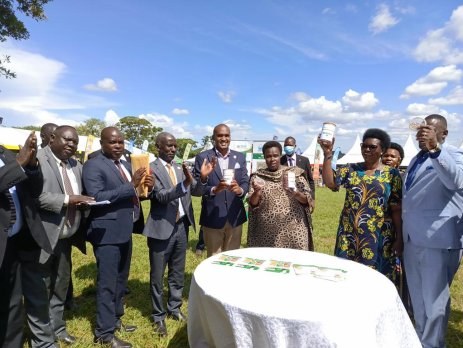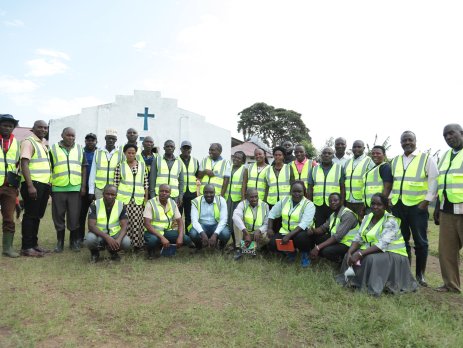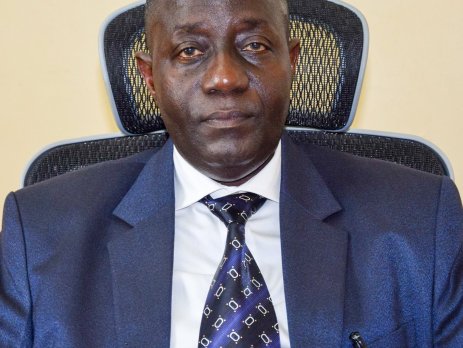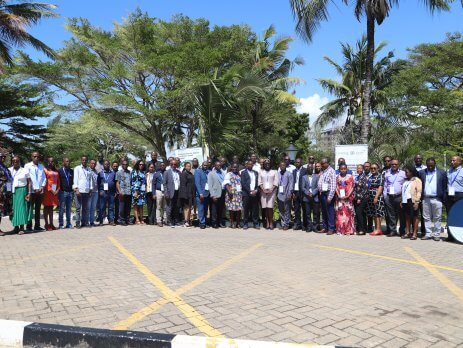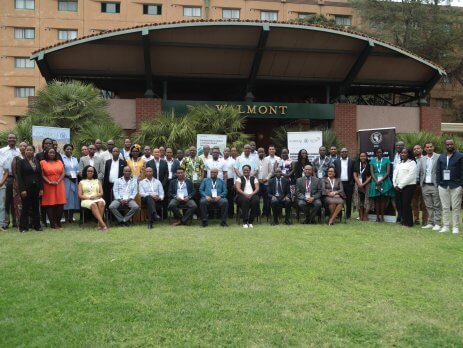ASARECA, IWMI Pilot Policy Analysis Tool on Uganda’s National Agricultural Extension Policy
GENEVIEVE APIO2024-12-02T16:10:00+00:00By Ben Moses Ilakut KAMPALA, UGANDA: ASARECA has facilitated a thorough analysis of Uganda’s National Agricultural Extension Policy (NAEP), which has highlighted the urgent need to improve implementation of the NAEP and recommended scaling of the ASARECA Policy Manager Tool to analyze Government agricultural policies and service delivery programmes that affect farmers in all the ASARECA member countries. In a workshop to pilot ASARECA’s Policy Manager Tool through joint analysis of Uganda’s...
Call to Action: CGIAR & ASARECA take steps to propel African governments’ efforts to restore and optimize benefits from landscapes
GENEVIEVE APIO2024-11-18T13:10:17+00:00By Ben Moses Ilakut NAIROBI, KENYA: Over 200 participants (https://www.youtube.com/watch?v=qZ3SI3DYON8) attending the Kenya Landscape Actors Platform (https://www.kenyalandscapes.com/) Conference (https://youtu.be/K5DlPc3bc0E?si=2WvXyhJk9FH4KCKk) have called for fast tracking of several policies and actions aimed at optimizing benefits from diverse Kenyan and Eastern and Central African landscapes including farmlands, forests, rangelands, water bodies, mountains, and hills. The participants, including farmers, leaders of various landscapes, community-based organizations, local and international Non-Governmental Organizations, civil society, agribusiness and farmersorganizations, national...
Request for Expression of Interest for Recruitment Services
GENEVIEVE APIO2024-11-18T07:04:53+00:00ENGLISH The Association for Strengthening Agricultural Research in Eastern and Central Africa (ASARECA) would like to secure the services of a recruitment firm to undertake Consultancy is to provide Recruitment Services to fill the position of Executive Director for ASARECA. ASARECA now invites expressions of interest (EOIs) from legally constituted consulting firms (not individual consultants) (“consultants”) to provide the recruitment services for the above-mentioned position. To apply, download the Request for...
Scaling Uptake of Agricultural Technologies: ASARECA, MAAIF take lead in promoting utilization of virtual irrigation tools in Africa
GENEVIEVE APIO2024-11-05T14:02:21+00:00By Ben Moses Ilakut KASESE, UGANDA—"I am happy that there are technologies that can help farmers measure the amount of water, temperature, and the presence of nutrients in the soil. More so, I am excited that I am now a proud owner of these technologies,” said Ms. Tumusiime Yonah from Kinyamaseke and farmer in Mubuku I Irrigation Scheme in the Western Uganda district of Kasese. “Thank you for sensitizing us about...
NaSARRI Marks 102 Years with New Crop Varieties Unveiled at World Food Day 2024
GENEVIEVE APIO2024-10-25T09:43:39+00:00By Genevieve Apio The National Semi-Arid Resources Research Institute (NaSARRI) commemorated its 102nd anniversary by hosting Uganda’s 44th World Food Day in Serere District in Eastern Uganda. This year’s event, under the theme “Right to Food for a Better Life and Better Future,” focused on food security and sustainable agriculture, particularly in Uganda’s semi-arid regions, where farmers face increasing challenges from climate change. A key highlight of the day was the official unveiling of five new crop varieties designed to bolster agricultural...
IITA, MAAIF, NARO, and ASARECA Join Forces to Sensitize Farmers on Combatting BBTV
GENEVIEVE APIO2024-10-17T11:37:12+00:00Farmers from virus-free Districts of Bushenyi, Rubirizi, and Bunyangabu pose for a group photo with experts By Genevieve Apio Kasese District, Uganda – A pivotal two-day farmers’ study tour focusing on tackling the Banana Bunchy Top Virus (BBTV) was held in Kasese District, Uganda. The tour, organized by the Ukama Ustawi (UU) Learning Alliance, a CGIAR-led initiative supported by the United States Department of Agriculture’s Foreign Agricultural Services (USDA-FAS) and the Plant...
Communication to ASARECA Stakeholders on Top Management Changes at ASARECA Secretariat
GENEVIEVE APIO2024-10-07T16:09:26+00:00ENTEBBE, UGANDA: The ASARECA Board of Directors would like to inform our esteemed stakeholders and Partners that Dr. Enock Warinda will no longer be serving as the Executive Director of the Association for Strengthening Agricultural Research in Eastern and Central Africa (ASARECA). He is therefore not permitted to transact any business on behalf of ASARECA and its constituents. Board of Directors' Statement
Dr. Sylvester Dickson Baguma Appointed Interim ASARECA Executive Director
GENEVIEVE APIO2024-10-07T17:39:17+00:00By Ben Moses Ilakut ENTEBBE, UGANDA—The ASARECA Board of Directors have appointed Dr. Sylvester Dickson Baguma as Interim Executive Director of the Association for Strengthening Agricultural Research in Eastern and Central Africa (ASARECA). The appointment takes immediate effect starting from October 7, 2024. Dr. Baguma is currently the Director of the National Agricultural Research Organization (NARO) Bulindi Zonal Agricultural Research and Development Institute (BuZARDI) in western Uganda. He is also a member of...
Twin challenges: Researchers in Central, Eastern and Southern Africa engage in a climate change and soil health forum to propose actionable recommendations
GENEVIEVE APIO2024-10-02T11:06:30+00:00By Ben Moses Ilakut, Genevieve Apio & Brook Makonnen MOMBASA, KENYA: Understanding the impacts of climate change and climate variability, including interpreting shifting rainfall patterns, rising temperatures, and increased frequencies of extreme weather events like droughts and flooding is critical in designing climate-smart agriculture practices and technologies, informing decision-making and adaptation strategies, and in climate-related risk management. To adapt to the impacts of climate change on Agriculture, measures urgently need to be...
AICCRA and ICPAC strengthen the capacities of Agricultural experts from ASARECA and CCARDESA member states
GENEVIEVE APIO2024-09-25T07:42:07+00:00By Genevieve Apio, Bridget Kakuwa-Kasongamulilo, and Brook Makonnen Gaborone, Botswana – African institutions CCARDESSA (https://www.ccardesa.org/) and ASARECA (https://www.asareca.org/) have been urged to hasten efforts to leverage the capacity of Africa’s experts and institutions such as the IGAD Climate Prediction and Application Center (https://www.icpac.net/) and national initiatives to jointly work to mitigate the effects of climate change. Addressing participants during a pivotal capacity-building training workshop at The Grand Palm Hotel in Gaborone, on...

